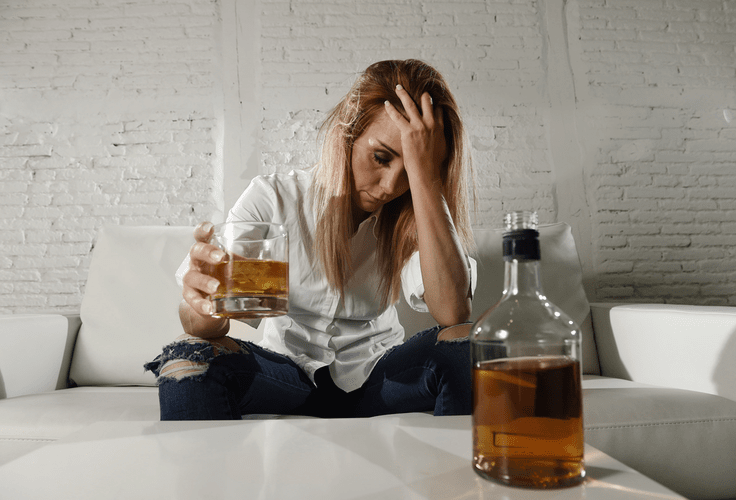Alcohol Withdrawal: How to Get Through It
If you suddenly stop drinking or significantly reduce the amount of alcohol you drink, it can cause AWS. You’ve taken an important first step toward recovery by deciding to stop drinking. Now, try to keep in mind that even though withdrawal symptoms may be unpleasant, they’re temporary, and treatment is available during this time. Alcohol withdrawal is widespread among people with alcohol use disorders who decide to stop drinking or reduce their intake. If you have severe symptoms, you may require inpatient or even intensive care level monitoring. In these cases, you’re likely to receive one of the various medications, such as benzodiazepines, the most successful in these cases.

Ethylene glycol (antifreeze) ingestion can lead to an altered sensorium, seizures, and severe renal dysfunction with acidemia that may require the initiation of hemodialysis. Methanol is rarely ingested as an ethanol substitute but can result in multisystem organ failure, blindness, and seizures. This is one challenge to getting treatment for DTs — if you have hallucinations and confusion, you may not understand that you need to see a doctor. Someone with delirium tremens needs immediate treatment in a hospital. You may hear things that seem very real to you, but they aren’t there.
What is considered 1 drink?
And while symptoms generally improve within 5 days, some may experience prolonged symptoms. In addition to experiencing Stage 2 symptoms, those with severe alcohol withdrawal experience severe anxiety and moderate to severe tremors. The exact timeline for alcohol withdrawal varies from person to person. It’s based on several factors, including how long, how much, and how regularly you have been drinking alcohol. The symptoms of alcohol withdrawal relate proportionately to the level of alcohol intake and the duration of the person’s recent drinking habit.
- When it binds to glutamate, it inhibits the excitation of the central nervous system, thus worsening the depression of the brain.
- Alcohol withdrawal delirium (AWD), commonly known as delirium tremens (DT), is the most serious symptom of alcohol withdrawal.
- If you have severe vomiting, seizures or delirium tremens, the safest place for you to be treated is in a hospital.
- Depending on the severity of your symptoms, your doctor may recommend monitoring a medical setting or at home.
- If you begin experiencing severe symptoms of AWS, it’s important to seek immediate medical attention.
The treatment aims to help relieve your symptoms, reduce the chance of complications and, if DTs are bad, save your life. Sedatives, usually benzodiazepines, are medications used to treat alcohol withdrawal and DTs. If your symptoms can’t be managed with sedatives, your doctor may prescribe anesthesia so Cure for Alcohol Withdrawal Symptoms you will be completely sedated until your symptoms end. You may also need intravenous fluids with vitamins and minerals to treat dehydration or bring your electrolytes back into balance. People with alcohol use disorder who suddenly stop drinking may also have a spike in an amino acid called glutamate.
Treatment for CUD
Withdrawal symptoms are common for people with alcohol use disorder who stop drinking, but many respond well to treatment. Behavioral treatment programs are helpful for people who want to quit drinking. These programs involve working with a team of mental health professionals in a group and individual setting.

Current screening and assessment tools don’t enable physicians to precisely predict who will face life-threatening symptoms. Those with mild symptoms or concerns about withdrawal are advised to seek guidance from a physician or clinician skilled in treating alcohol withdrawal. Medical detox is often the initial step in the journey to recovery from alcohol addiction.
Data management and monitoring
A cold shower can help you physically reset if you are experiencing strong urges to relapse. It can help clear your mind and has many other great benefits beyond helping you deal https://ecosoberhouse.com/ with alcohol withdrawal. It may also help with hot flashes that can occur during alcohol withdrawal. An effective coping technique is to “fast forward” your relapse fantasy.
If you or someone you know is having thoughts of suicide, a prevention hotline can help. The 988 Suicide and Crisis Lifeline is available 24 hours a day at 988. During a crisis, people who are hard of hearing can use their preferred relay service or dial 711 then 988. Click here to learn more about helping someone with alcohol use disorder. Ethanol is the key ingredient in many alcoholic beverages, such as beer, wine, and spirits.
Treatment of Alcohol Withdrawal
People who drink daily or almost every day should not be left alone for the first few days after stopping alcohol. Withdrawal symptoms can quickly go from a bad hangover to a serious medical situation. During the 12- to 24-hour time frame after the last drink, most people will begin to have noticeable symptoms. These may still be mild, or the existing symptoms might increase in severity.
- Currently, health experts do not know if any factors influence the timeline of alcohol withdrawal syndrome aside from how much alcohol an individual typically consumes.
- Of people who attend AA, 44 percent of those who remain free of alcohol for 1 year probably will remain abstinent for another year.
- As you continue to commit to long-term recovery, support group meetings like Alcoholics Anonymous (AA) or online support communities might be helpful.
- When you stop drinking, after doing so heavily for a long time, the depressant on your central nervous system stops, causing your nervous system to become overexcited.
- These first few weeks are critical because they are when the risk of relapse is highest.
